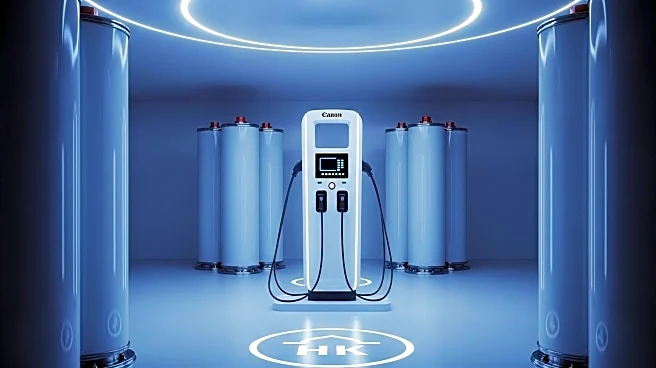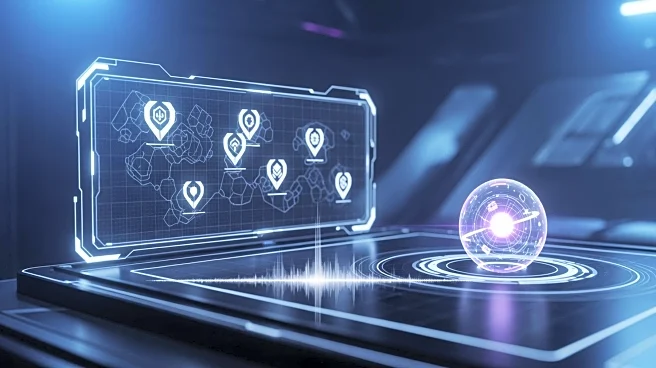What is the story about?
What's Happening?
Germany has discovered significant lithium reserves in the Altmark Region, Northern Saxony Anhalt, with 43 million tons of lithium carbonate equivalent (LCE) identified. This discovery is expected to supply enough battery material for 500,000 cars by the 2030s. Neptune Energy, the firm behind the discovery, plans to process the lithium locally, ideally within Germany, to secure a regional value chain. The discovery is seen as a step towards reducing Europe's reliance on foreign lithium supplies, particularly from China, which currently dominates the global lithium supply chain.
Why It's Important?
Lithium is crucial for electric vehicle (EV) batteries, and China's dominance in lithium refining poses strategic challenges for Europe. The discovery in Germany could bolster the European Union's efforts to establish domestic EV battery supply chains, aligning with environmental goals like the European Green Deal. This development may also influence the minerals sector amid U.S.-China tensions, as President Trump seeks to reshape Washington's minerals strategy to reduce dependence on Beijing. The local processing of lithium could enhance Germany's industrial capabilities and contribute significantly to the European lithium supply.
What's Next?
Neptune Energy plans to trial direct lithium extraction (DLE) technologies until 2026, followed by a demonstration phase to test a fully integrated extraction plant. This step is crucial for moving towards commercial production. The company is also working on an offtake agreement to guarantee the purchase of a specified amount of lithium. The success of local processing will depend on meeting German environmental legislation and addressing midstream battery production challenges, which currently rely heavily on China.
Beyond the Headlines
The discovery raises questions about the processing of lithium and the midstream battery supply chain, which includes anode and cathode components. Germany's strong base of mid-tier companies serving the automotive industry could potentially support midstream battery production. However, replicating a significant portion of the supply chain is necessary to reduce reliance on China. Collaborative efforts between Europe and the U.S. to create an allied supply chain could further stabilize the market and control price volatility.

















